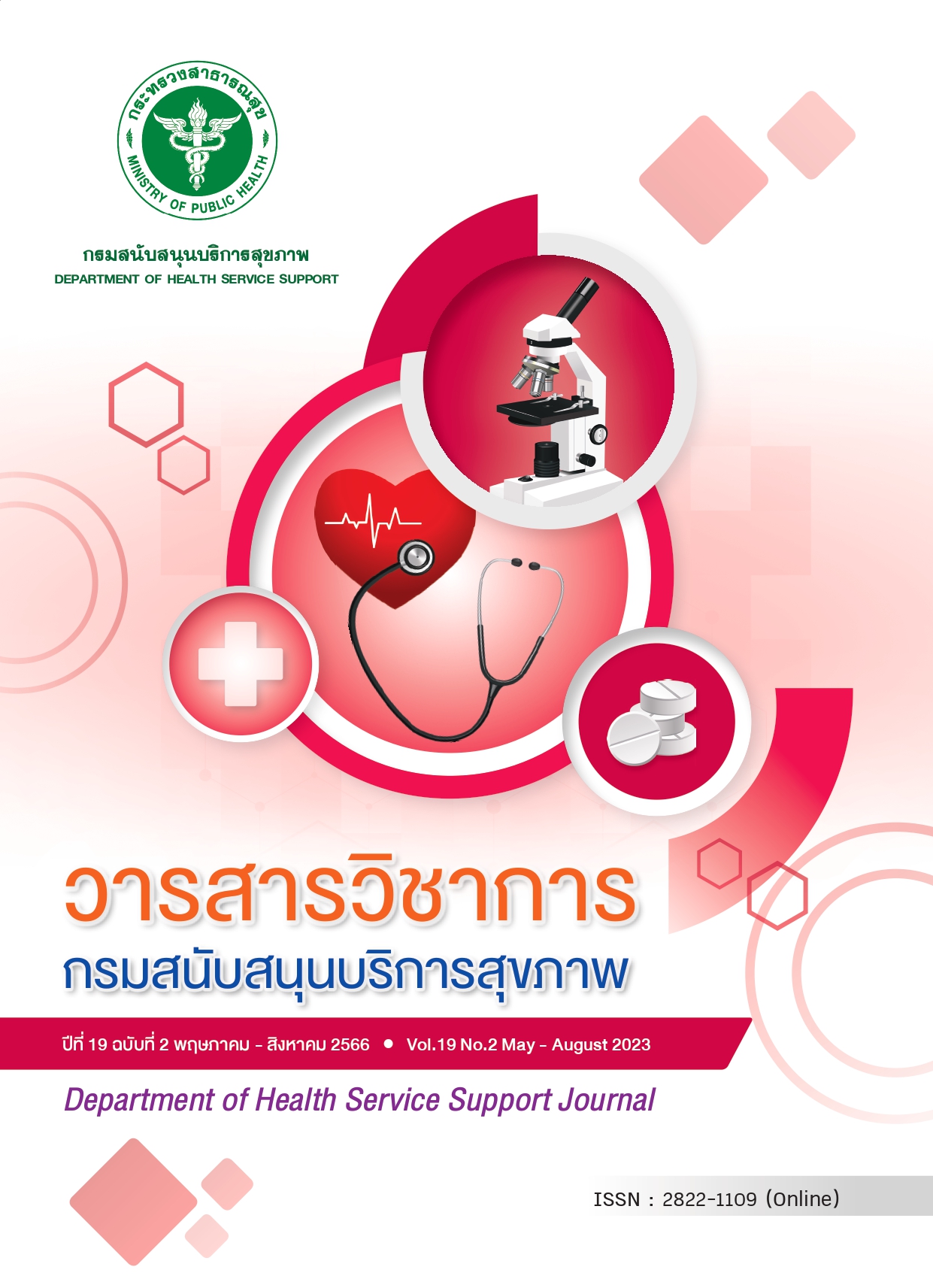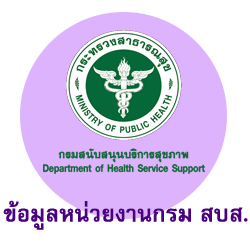THE DEVELOPMENT OF COMPETENCY EVALUATION FORM FOR PUBLIC HEALTH EXECUTIVES PROGRAM
Keywords:
Evaluation Form Development, Executive Competency, Public Health Executive CourseAbstract
This research and development aims to create, experiment, improve, revise and inspect the quality of the competency assessment form for graduates of the Ministry of Public Health’s First-Line and Middle Level training program. Research and development method is used and it divided into 2 phases as follows: Phase 1 Draft and develop an executive competency assessment form by determining the components of the assessment form Determine how to measure yourself by self-assessing your knowledge, skills, and characteristics for each competency. Using the assessment framework from the executive competencies of the Ministry of Public Health’s First-Line and Middle Level training program, B.E. 2565 as a consideration frame. Phase 2 Check the quality of the draft executive competency assessment form with content analysis I-CVI, S-CVI and percentage statistics. And applied to the sample by selecting a purposive sample from 7 of the College of Health Administration’s Board of Health Administrators Program Development for First-Line and Middle Levels, course development expert, the Ministry of Public Health’s human resource development expert, and representatives of Boromrajonani College of Nursing and Sirindhorn College of Public Health. Data were analyzed by means. And standard deviation to verify the suitability and feasibility of the assessment model. The results showed that the executive competency evaluation form was based on a 5-level self-evaluation scale, the executive competency of the Public Health Executive Program at the first-line and middle level consisted of 28 and 33 competencies, respectively, the executive competency evaluation form had I-CVI and S-CVI passing the quality criteria, most of the competencies had a high measurement feasibility, 6 competencies had a low measurement feasibility including universal mindset, growth mindset, outward mindset, external and internal environment analysis for strategic planning, and user experience design. These competencies should be clearly defined to the evaluator prior to make the evaluation.
References
Gray, J. R., Grove, S. K., Sutherland, S. (2017). Burns and Grove’s the Practice of Nursing Research: Appraisal, Synthesis, and Generation of Evidence. 8th ed. St. Louis, MO: ELSEVIER.
Gronlund, N. (1985). Measurement and Evaluation in Teaching. MacMillan, New York
Netprasertkul, W. and Chan Soontraporn, P. (2021). The Development of Competency Scale for Nurses Mentors in Vajira Hospital. Journal of the Royal Thai Army Nurses. 22(3): 313-321. (in Thai).
Patcharakiatkanok, P. (2018). Approach Management for Developing Competencies of Sub-District Health Promotion Administrators, That is under Samphran District Public Health Office, Nakhon Pathom Province. Journal of Department of Health Service Support. 14(3): 35-45. (in Thai).
Phatthanasombatsuk, M. (2022). Validation of Nursing Research Reports and Proper Use of Social Science Research Instruments in Publishing.The Southern College Network Journal of Nursing and Public Health. 8(2): 329-343. (in Thai).
Pipattadorn C., Anusananan, S. and Wongnam, P. (2017). A Development of a Management Competency Test for the Basic Education School Director In Thailand to Enter Aseanization Era. Journal of Education. Retrieved from http:// ojslib3.buu.in.th/index.php/education2/ article/view/4957. (in Thai).
Polit, D. F., Beck, C. T. (2014). Essential of Nursing Research: Appraising Evidence for Nursing Practice. 8th ed. Philadelphia: Lippincott Williams & Wilkins.
Polit, D. F., Beck, C. T. (2017). Nursing Research: Generating and Assessing Evidence for Nursing Practice. 10th ed. Philadelphia: Lippincott Williams & Wilkins.
Ritruechai, S., and Srisuwan, P. (2022). Development of Training Courses for Executives of the Ministry of Public Health. Journal of Health Science. 31(3): 569-582. (in Thai).
Ruangyam, P., Maneemai, P., and Thongplew S. (2015). The development Tool of Instrument Estimate to analyze the Core Competency of King Mongkut’s University of Technology North Bangkok by Online system. The 5th Phetchaburi Rajabhat Research Conference for Sustainable Thailand “Interdisciplinary and Innovation for Sustainable Development in Asia-Pacific”July 4, 2015, Phetchaburi Rajabhat University. (in Thai).
Sangkornkaew, S. (2021). Development of the Global Competency Measurement Model for Student Teacher.Master of Education, Educational Research and Evaluation, Naresuan University. (in Thai).
Suksawang, S. (2023). The challenge for modern leaders. Retrieved June 19, 2023, from https:// www.sasimasuk.com/16768188/vuca-worldThe challenge for modern leaders. (in Thai)
Thiamchan, T. (n.d.).Where has information and communication technology gone, why is there only “digital” left? Retrieved October 25, 2022, from https://www.bangkokbangkok. net/ict-to-digital.html). (in Thai).
Uthaiphan, P., and others. (2011). Development of an Evaluation Model for Assessment of Desirable Competencies of Pharmaceutical Technique Students in Sirindhorn College of Public Health, Praboromarajchanok Institute. KKU Res J. 16(7): 883-898.
Waltz, C.F., Strickland, O.L., Lenz, E. R. (2010). Measurement in Nursing and Health Research. 4th ed.New York: Springer.
Downloads
Published
How to Cite
Issue
Section
License
Copyright (c) 2023 Journal of Department of Health Service Support-วารสารวิชาการกรมสนับสนุนบริการสุขภาพ

This work is licensed under a Creative Commons Attribution-NonCommercial-NoDerivatives 4.0 International License.



